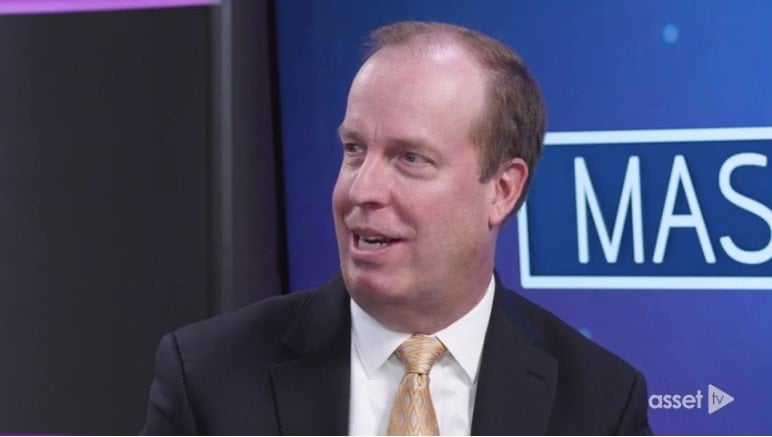The comments by Owen Fitzpatrick expressed in this video segment are those of Aristotle Atlantic Partners, LLC (“Aristotle Atlantic”) and are subject to change without notice.
Aristotle’s Owen Fitzpatrick Discusses The 2019 Outlook On AssetTV
Q3 hedge fund letters, conference, scoops etc
Transcript
I'd call it the year of reversals right through the end of September with the dollar strong oil doing quite well grow with investors within the equity markets outperforming value of the U.S. moving along. Based on its own fundamentals at a pretty good clip and the rest of the world correcting and now all of a sudden rather than the rest of the world catching up to the U.S. has caught up to the rest of the world values significantly outperformed growth. Oil prices have declined quite a bit and the dollar has weakened so it was a sharp reversal and I think the two main issues out there are Fed policy and they comments that Powell made back just two months ago and then obviously the trade issues that we're facing with China are the two big ones that caused that reversal.
Right. Well let me actually add one more to it to your left there. Those three and maybe economic and political instability I guess I'd say. So if we take let's say those 3 on the table there. What do you think. Which one are you most concerned about heading into 2019. We had to pick just one.
I agree that I think it's really rates to a large extent has much bigger impact on the economy just given that you repricing debt at much higher levels. I also think when you look at kind of what the Fed is dealing with is unprecedented territory right we're dealing not only with raising interest rates but shrinking a balance sheet and then doing that in a global economy where developed markets really are still on the start line right. The gun went off. We're halfway around the track raising interest rates and we look back and everyone still at the start line and sitting at zero and you have that additional pressure of the dollar and then the last thing I'd highlight is that you're also dealing with versus past cycles very high sovereign debt levels. So we're sitting here with 21 trillion in the U.S. we can you know revert back to what happened in 0 8 and 0 9. And I think the biggest influence on markets at that point in time were really sovereign debt issues. So if we start to to head back to higher interest rates it's a little bit of a difficult territory for us because the fastest growing component of our annual spending in the U.S. is actually interest expense. So it becomes a harder and harder story to tell. And we all know where it ends right. We can look at Japan and see what happens when you spend as much money there a little encapsulated from the standpoint that they own all their own debt. We have a little bit more of an issue in trying to convince people to take on our debt. So I think that's why interest rates are you know really the story here. I think tariffs are very important and I think we'll have a big impact but I think interest rates really take precedent. Right.
Well I mean it's a lot on the plate I think for 2019 so let's get into what you think about 2019 as we look ahead into the year. So start us off. Tell me also if you're looking at back half staff of next year or if you're looking to front load some of the conversation so we'll start with you on this one.
So I do think we get a bounce back. I think you know the market reaction was pretty severe in relation to how quickly it reversed from a pretty nice upward trend and I think the fundamentals are still there for the market to do well. I think the Fed will at some point in time back off of these rate hikes in 2019. So I think a lot of people are starting to suggest that you know we're not going to see three rate hikes in 2019 maybe it's two maybe it's one and maybe it's a pause and I think that pause is definitely going to be the case they're going to be positive for asset classes in theU.S. in general. And I think the earnings backdrop is still going to be positive year over year not to 24 percent growth. That Jake alluded to but probably high single digit type of earnings growth which is more of a supportive to push the equity market higher than valuation levels are at reasonable rates. And then the last component of it is it's just the fact that I don't think we really can afford higher interest rates so I think at some point in time you do have to back off and you do have to try to try to get growth going that's not only in our interest but that's really a global issue in developed markets and when you say we though you mean consumers companies really mean exactly can't afford that. I don't think the economy really can grow out of the issue around the size of the debt problem sovereign debt problem. We went from a technology bubble to a real estate bubble to a sovereign debt bubble it's very it's not not easy to convince people to sell their technology stocks to put more margin in their account.






